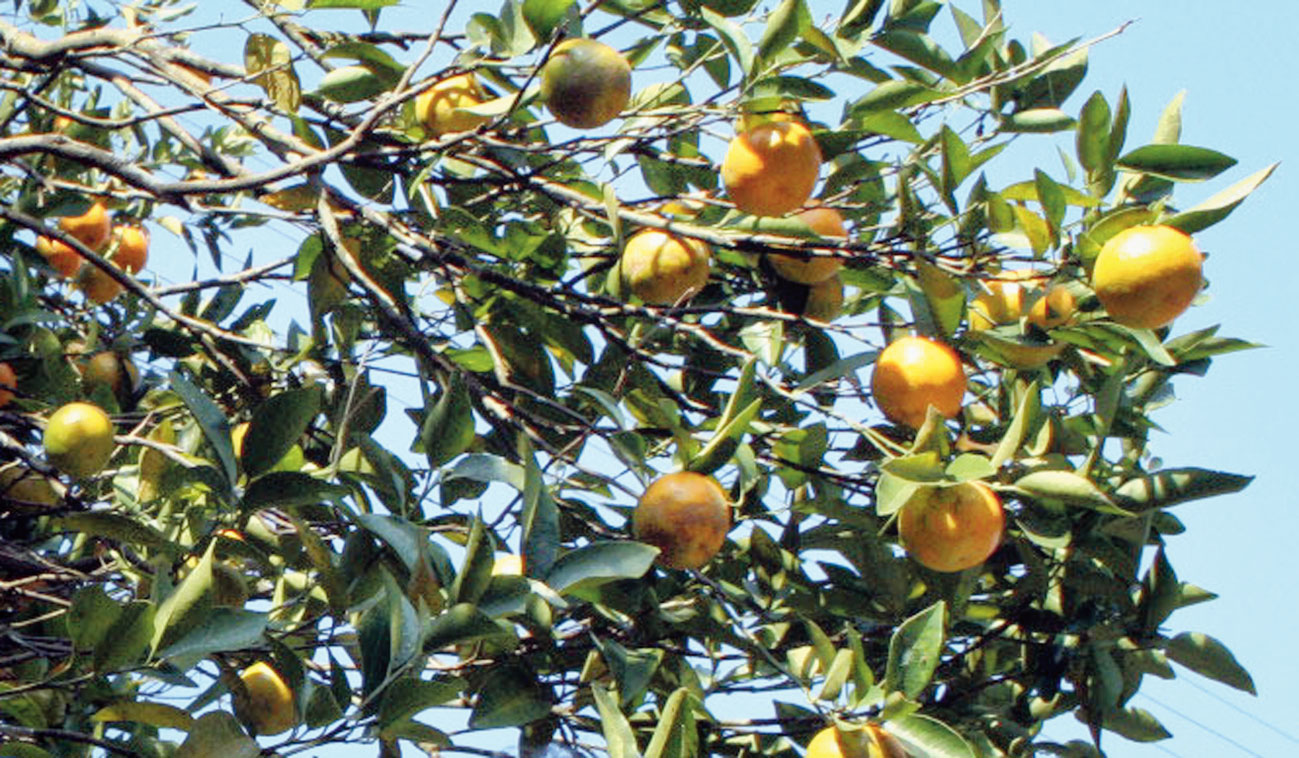The Union agriculture minister has said in Parliament in reply to a question from Darjeeling BJP MP Raju Bista that the Centre has not been informed about any steep drop in orange production in the hills.
Orange growers in Darjeeling have complained that production has gone down by more than 60 per cent compared to what it was five years ago.
Bista, the newly elected MP, said on Wednesday that he had asked in Parliament 'two sets of questions' related to agriculture and orange production in Darjeeling and Kalimpong districts.
He said he had asked whether the Union government would take cognisance of the losses suffered by the orange growers because of plant disease and send a team of experts to help the farmers.
Narendra Singh Tomar, the Union minister for agriculture and farmers' welfare, said in a written reply to the Lok Sabha on Tuesday: 'No such loss has been reported by the State Horticulture Mission, West Bengal.'
In response to Bista's question 'whether the farmers and fruit growers from the region have suffered due to lack of government support', Tomar said: 'There is no such information available.'
Tomar also informed the House that the Centre had introduced the yield-based Pradhan Mantri Fasal Bima Yojana (PMFBY) and the weather index-based Restructured Weather Based Crop Insurance Scheme (WBCIS) in the 2016 kharif season to provide financial support to farmers and stabilise their income.
'PMFBY is voluntary for states. West Bengal Government opted for implementation of both the schemes and implemented the scheme during 2016-17, 2017-18 and 2018-19. But the State Government has withdrawn from the scheme from Kharif 2019 and is implementing its own Scheme 'Bangla Fasal Bima Yojana',' the Union agriculture minister said in the written reply, asked about minimum support price for farmers from north Bengal.
The Centre acknowledged that Darjeeling was 'one of the best-growing zones for oranges in India'.
Bista referred to the replies and said it was 'very disturbing' that the Bengal government had 'not taken any steps to involve the Centre when it comes to the distress faced by farmers in the hills'.
'We know that in the past 10 years, orange production has gone down drastically in the region,' the MP said, and added that any other state would have asked for 'special farmers' compensation' and help to 'save orange crops'.
'I am just dismayed they haven't done anything,' Bista said in a statement.
According to figures available with the Union agriculture ministry, oranges were grown on an area of 3,900 hectares and the total yield for the year 2017-18 was 38,000 metric tonnes.
Bengal horticulture minister Abdur Rezzak Mollah said the Centre was aware of the fall in orange production. He said the trees had become old and fresh plantations were needed to increase production.
'The Centre knows everything, but is yet to initiate proper steps to help the farmers. If the Centre wants to know from us, we will send details of the state of orange production in Bengal,' Mollah said.
Darjeeling oranges, though smaller in size, are considered superior to the Nagpur variety because they are more sweet, juicy and succulent. Viral and fungal infections, pest attacks and poor farming practices have been primarily blamed for the drop in yield of Darjeeling oranges.
The Gorkhaland Territorial Administration looks after horticulture in Darjeeling. A source said the hill body had received a 'nominal' amount in 2012-13, when the GTA was set up, to work on orange cultivation and had got nothing since.
'The horticulture department has prepared a plan to rejuvenate the crop. To implement this, long-term funding and adequate manpower is required,' a source said.
Horticulture experts maintain that the thrust should be on distributing at least 5 to 6 lakh seedlings every year and training farmers on proper agriculture practices.











